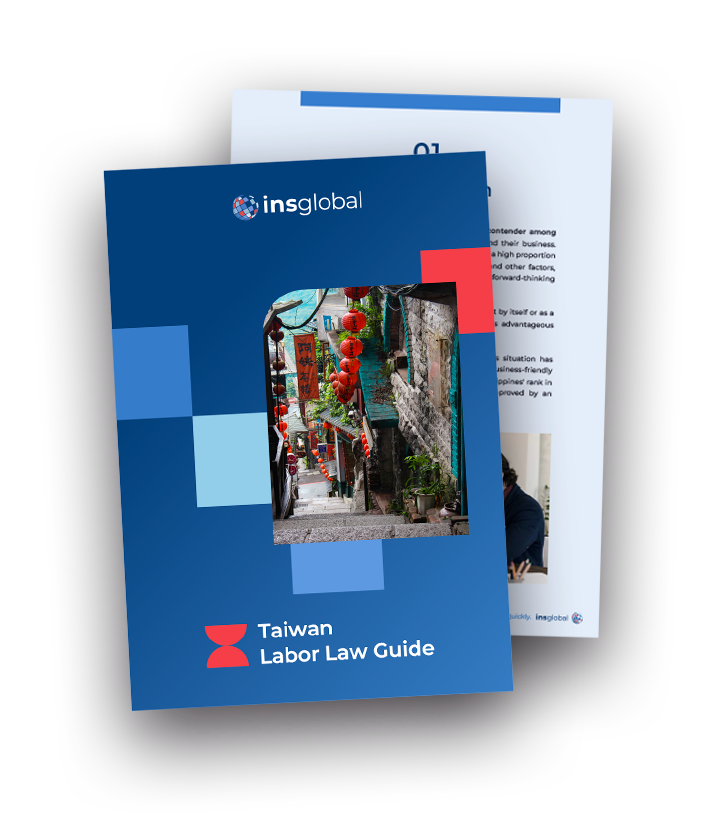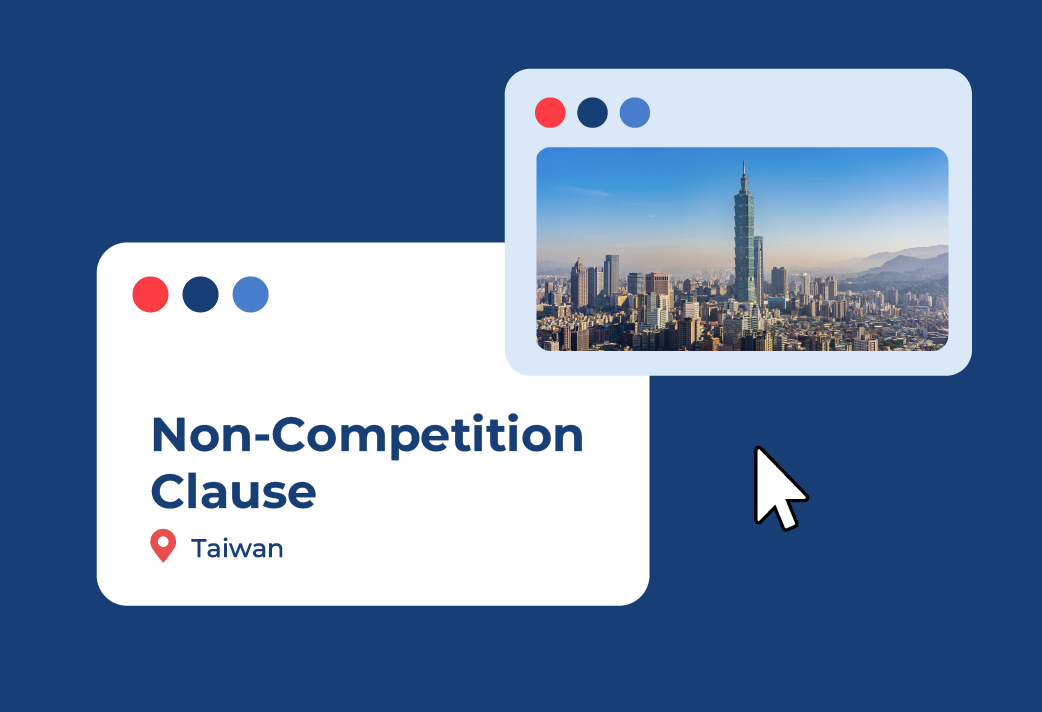A common practice for many employers is to impose non-competition obligations on employees for both during the term of employment and once employment has been terminated. These non-competition clauses are generally implemented to prevent employees from working in direct competition against an enterprise and using their trade secrets, once their employment contract comes to an end. Non-competition clauses differ in each jurisdiction, as such the rules regulating non-competition clauses in Taiwan differ from those in other places.

Tired of scrolling? Download a PDF version for easier offline reading and sharing with coworkers
In a hurry? Save this article as a PDF
Tired of scrolling? Download a PDF version for easier offline reading and sharing with coworkers.
Fill up the form below 👇🏼
Are Non-Competition Clauses Enforceable in Taiwan?
It is generally accepted that a non-competition clause is enforceable while during an employment period of an employee. The question of enforceability arises once an employment period has come to an end. Although the rules surrounding non-competes may differ from one place to another, the general principles remain the same in many areas.
Non-Competes During Employment
As previously mentioned, it is mostly accepted that during employment a non-compete may be enforced, prohibiting an employee from conducting work of a similar nature to another enterprise.
Check Our Taiwan Labor Law Guide
Learn how the Taiwanese law is applied in all aspects and situations, from an employer and employee perspective

Non-Competes After Employment
Non-competes in Taiwan that are meant to be enforced after employment, must be enforced in accordance with section 9-1 of the Labor Standards Act (LSA). In order to have an enforceable non-compete agreement the following requirements have to be met:
- There are legitimate business interests that an employer has, which require protection.
- The position the employee held allowed the employee access to the employer’s trade secrets;
- The period of time, scope of activities, area of focus and prospective employers related to the limitations of the non-compete, must be reasonable.
- The employer must reasonably compensate the employee for losses incurred, for the period during which that employee is unable to work due to the non-competitive agreement (this does not include remuneration received during the period of employment).
The LSA further states that any agreement which does not meet the above-mentioned requirements will be null and void. The maximum period of a non-competition agreement in Taiwan is 2 years. If a company has requested an employee to sign a non-compete agreement in Taiwan that is longer than 2 years, the period will be shortened to 2 years.
Format and Content of a Non-Compete in Taiwan
A post-employment non-compete agreement is required to be in writing and contain specific details of the restrictions. The details should include the period of time the non-compete will be in effect, the compensation, the scope of limitation and the area in which it would apply.
- Period of Restriction
As stated above, a non-cancellation agreement cannot exceed 2 years. Furthermore, the duration of the non-compete cannot exceed the life cycle of the information or trade secrets which require protection.
- Compensation
An employer is required to reasonably compensate an employee for any losses incurred by the employee, during the time he/she is unable to work due to compliance with the non-competition agreement. The compensation should not be less than 50% of the employee’s monthly wage at the time their employment came to an end. The compensation can be paid in monthly installments or a lump sum at the time the employee vacates the position.
- Scope of Limitation
The specific details of the scope of the limitation should be set out. This information should include details of the type of business and activities, which are identical or highly similar to the activities conducted by the employee during his/her period of employment, which the employer intends to restrict.
- Area of Limitation
This refers to the geographical area in which your company would be located. The geographical area needs to be limited as if the area is too wide, a court may be less likely to uphold the limitation.
Partner with INS Global
If you are considering doing business in Taiwan or you have already started your operations, INS Global is able to assist your enterprise reach its goals. We offer a wide array of HR services such as employment solutions, recruitment, employee termination assistance and many more. Contact us today and let our experts help further your business in Taiwan.

SHARE